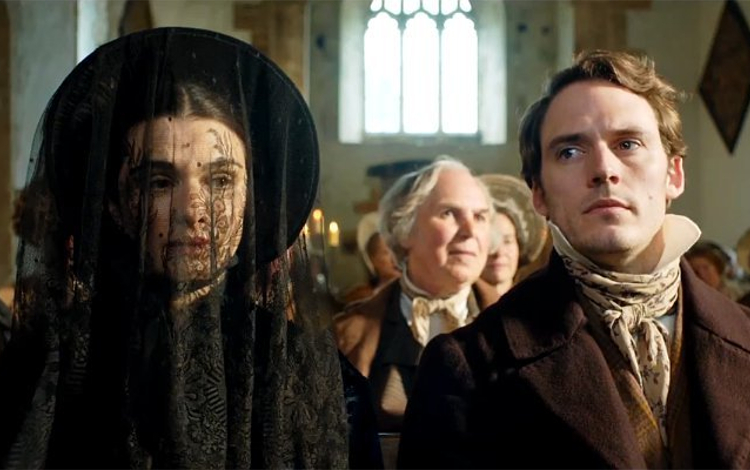Film Review | Does My Cousin Rachel Lack the Suspense That Defines the du Maurier Classic?
Rarely does watching a film make me want to bring back the dead. However, while watching My Cousin Rachel I could not help but yearn for the return of Hitchcock to re-create the perfection of a Daphne du Maurier plot combined with superb direction. Du Maurier and Hitchcock fused their narrative powers together on other memorable films – Rebecca (1940) and The Birds (1963). These are movies which synthesised the gothic undertones of du Maurier’s writing along with Hitchcock’s mastery of suspense — clear cinematic chemistry. No matter how comfortable my chair is while watching these films, I am always constantly alert, terrified by every potential scare that lurks on the screen.
During My Cousin Rachel however, I was far less tense and terrified. And I mean that in a negative sense. For a contrast let’s look at the film The Birds: It moves slowly, it snails away sneakily, suspense bubbling up through that painful wait for a pesky gull to descend and gauge some eyes out. When a bird does attack it really isn’t all that frightening, but that feeling like they are about to attack? That’s petrifying. This highlights Hitchcock’s reckoning that “There is no terror in the bang — only in the anticipation of it”. In my opinion in My Cousin Rachel, the anticipation is meagre and the bangs are mostly likes those stale little party poppers — present but not powerful.

Yet the film contains so much potential for suspense. The plot centres on the young male protagonist Philip (Sam Clafin), enraged after the mysterious death of his cousin and stand-in father Ambrose, who had traveled to Italy to recover his health. Instead of feeling better following a healthy dosage of Vitamin D, Ambrose marries Rachel (Rachel Weiss), eventually claiming through rushed letters that this mysterious woman is responsible for his demise. These are exciting, eventful happenings which reinforce and remind us of the skilled writer du Maurier was — yet this enticing cloud of mystery clears up just a little too fast. Rachel, I feel, should be speculated about longer, and there should be more nerve-tickling suspicion surrounding her character. This would provide her with that something more, because after all she is the star, someone who renders the other characters that little bit more close minded and one-dimensional.
While there may not be a perfect chemistry evident between plot and suspense, Claflin and Weisz are both believable and skilled in their roles as Philip and Rachel, respectively. The troubling thing is that their roles are basically a rather confusing oedipal triangle, something that has morphed since Sophocles but no more uncomfortable all the same. Essentially there is a potential murder (Did Rachel do it? Did she kill her husband? Or did the characters in this tale just read too much Ann Radcliffe?) and there is sexual contact between what you could call mother and son figures. One of the stand out scenes consists of Philip “getting what he wants” for his twenty-fifth birthday. We zoom into Rachel’s face which perfectly displays her thoughts along the lines of: “ is he done yet?”. It has the essence of a put upon mother, doing yet another tedious chore for her ungrateful son. Yet in this case he is more of a grateful son; quite disturbing.
Perhaps, what My Cousin Rachel really comments on is a brutish lack of understanding concerning women. Ambrose and Philip are almost one character, Philip idolising him so much that he provides in effect a copy and paste Ambrose. Perhaps it is an extra need to be loved, because Philip will never surmount the fact that he is orphaned. This lack could potentially be seen to manifest in Philip’s obsession with Rachel; he cannot merely accept and love her in an appropriate way, instead he must have the ultimate love of a wife. Is Rachel really a deviant, murdering ailing bachelors and sexually confusing young men into ideas of matrimony? Or is she a forward thinking woman of the world whose modern ways convince humble British country folk to think that she must surely be a witch? The film remains foggy and open to interpretation as to whom Rachel really is – the only fragment of suspense achieved (and without the help of Hitchcock!).
My Cousin Rachel is in cinemas now.

